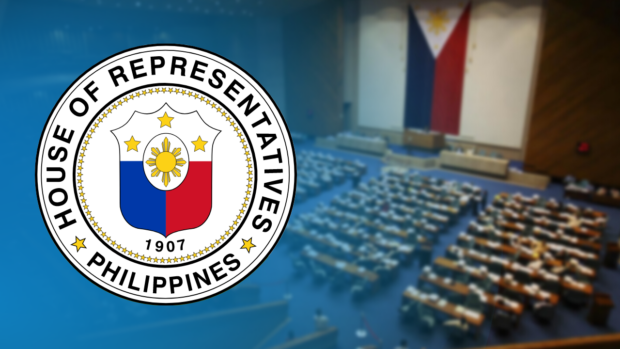
Lawmakers from the House of Representatives laud the administration of President Ferdinand Marcos Jr., who reported that the country had a lower crime rate and decreased human rights violation complaints in 2023. INQUIRER FILES
MANILA, Philippines — Lawmakers from the House of Representatives praised the administration of President Ferdinand Marcos Jr., who reported that the country had a lower crime rate and decreased human rights violation complaints in 2023.
In a press briefing on Tuesday, PBA party-list Rep. Margarita Nograles, Iloilo 1st District Rep. Janette Garin, Lanao del Norte 1st District Rep. Khalid Dimaporo, and Negros Occidental 3rd District Rep. Francisco Benitez emphasized the importance of being able to enforce rules without stepping on people’s rights or engaging in vigilante-style acts.
“As a lawyer also, and of course even if you are not a lawyer, it is only right that you do not take the laws into your own hands, you do not violate it, right? So, it is heartening, and congratulations to this administration for doing that, for showing that it can be done,” Nograles, who hails from Davao City, said.
READ: Marcos cites decrease in crimes, human rights violations
“I think in addition to that, we should be very clear that that balancing act that the President mentioned actually helps strengthen our institutions, our democratic institutions as well, that we can strengthen our democratic institutions along with human rights, and eventually peace and order at the same time,” Benitez added.
Garin, meanwhile, said that former president Rodrigo Duterte may have had good intentions when he waged a war against illegal drugs, but the failure to rein over operatives on the ground and the killing of children, teenagers, and other individuals believed to be innocent painted a bad picture of the Philippines.
This bad reputation due to alleged extrajudicial killings, she noted, affected the country’s tourism.
“We congratulate the administration of PBBM for the bloodless campaign on implementing laws. While the former president probably had his goals – his concerns and his intentions may be valid, but the problem with seeing children or teenagers or people being killed right and left, those who are packed with tape, it paints a bad picture of the Philippines,” Garin said.
“So there are – while the intention of the former president is to curb drug abuse – you can see that poor communities are affected the most. What is most hurting here is that – I’m a mother too – we know that when that happens, when you tolerate that kind of act, it can led to two things: impunity, people on the ground or implementers abuse the law, and it is also bad for tourism,” she added.
On Monday, Marcos said 198,617 crimes were recorded in 2023 – the first full year of his administration. The number is fewer than the 295,382 crimes logged in 2017 or during the first full year of the Duterte administration.
He also said that index crimes – or crimes deemed by the police as serious in nature – likewise went down from 107,899 in 2017 to 38,436 in 2023.
“We have done it without resorting to legal shortcuts or short-circuiting the process or acts that subvert the rule of law,” Marcos said in his speech during the oath-taking of new star rank officers of the Philippine National Police (PNP) on March 18.
Despite his family being tied to questionable human rights records, Marcos vowed at the start of his administration to pursue law enforcement, particularly the war against illegal drugs started by Duterte, within the framework of human rights.
No less than United Nations (UN) Special Rapporteur Irene Khan in her visit to the Philippines last February noted that Marcos’ administration has set a new tone in terms of rights issues, as the current government showed a willingness to cooperate with international bodies.
However, Khan noted there is still a lot of work to do if the administration wants to “turn the page.” She suggested several steps to achieve it, including abolition of the National Task Force to End Local Communist Armed Conflict (NTF-Elcac).
The Duterte administration was plagued by accusation of human rights abuses, culminating in drug war victims’ relatives filing of several complaints against him before the International Criminal Court for allegedly committing the crime against humanity of mass murder.
Former president Duterte, however, repeatedly denied that extrajudicial killings existed during his term, even claiming at one point that he ordered a “discreet” investigation that revealed warring drug gangs were behind the deaths outside sanctioned police operations.